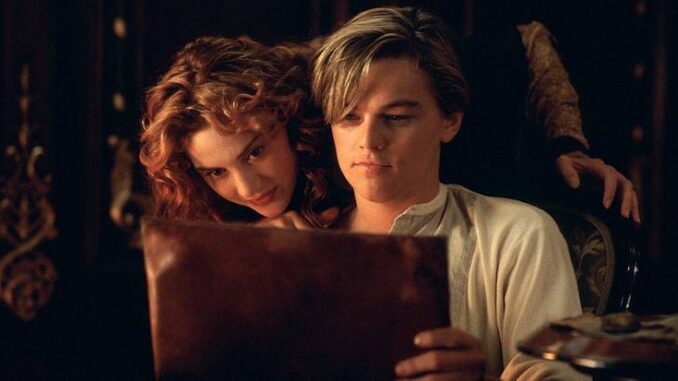
Why Jack Dawson’s Fate in Titanic Still Sparks Debate
The frigid North Atlantic, the splintered grandeur of a sinking ship, the impossible love between an aristocrat and an artist – Titanic is a cinematic titan, its narrative etched into the collective consciousness. Yet, for all its epic scope and tragic beauty, one singular plot point continues to resurface like a phantom limb, sparking impassioned debate decades later: the death of Jack Dawson. Why, when the film's ending is so unequivocally clear, does the question of "couldn't he have fit on that door?" persist with such tenacity? The answer lies in a potent cocktail of emotional investment, narrative necessity, and the human impulse to rewrite an unbearable tragedy.
At the heart of the perennial debate is the infamous "door" – or rather, the piece of ornate flotsam upon which Rose DeWitt Bukater floats to safety while Jack, shivering and blue, sacrifices himself to the icy grip of the ocean. The visual is stark: a seemingly ample wooden panel, supporting one person with room, it seems, for another. This practical query ignited a firestorm of armchair physics and amateur buoyancy tests, culminating in the cultural phenomenon of the MythBusters episode, which, to many fans' delight, concluded that, with some ingenuity, both could have indeed survived. James Cameron, the film's creator, has repeatedly countered this, explaining the nuances of weight distribution, stability, and the rapid onset of hypothermia for anyone submerged in the frigid water. Yet, the technical explanations, no matter how scientifically sound, often fall on deaf ears, overshadowed by a more primal frustration: the feeling that a solvable problem was left unsolved, a potential salvation tragically missed. The debate here isn't just about physics; it's about the feeling of injustice, the nagging whisper that a happy ending, however improbable, was within reach.
Beyond the practicalities, Jack Dawson's fate sparks debate because of the sheer emotional weight he carries. Jack is not merely a character; he is the embodiment of freedom, passion, and the intoxicating thrill of first love. He represents the escape from Rose's gilded cage, the promise of a life unburdened by societal expectations. His death isn't just the end of a life; it's the snuffing out of a dream, the crushing of a nascent hope. For audiences who have invested fully in their whirlwind romance, his demise feels like a betrayal, an ultimate cruelty inflicted upon a character they have come to cherish. The human heart, untethered by logic, desperately craves the "what if" – the alternate reality where the young lovers defy not only social norms but also the very laws of survival. This emotional longing fuels the debate, making the acceptance of his death not just a narrative point, but a personal ache.
Moreover, the debate persists because Jack's death, while heartbreaking, is also undeniably integral to Rose's journey and the film's overarching themes. Cameron himself has often interjected into the "door debate" by stating plainly: "Jack had to die." His sacrifice is the crucible of Rose's transformation. It is through his selflessness that she fully embraces the lessons he taught her – to live life to the fullest, to survive, to make her life count. His final words, "Never let go," are not just about holding onto a piece of wood, but about holding onto life, hope, and the memory of their love as an anchor for her future. Jack becomes, in his death, the catalyst for Rose's liberation, allowing her to break free from her past and forge her own destiny. While this narrative necessity is intellectually understood, it doesn't diminish the emotional sting. The argument becomes a fascinating tension between the head (recognizing artistic intent) and the heart (yearning for a different outcome).
Finally, the debate around Jack's fate is a testament to the enduring power of storytelling and fan engagement. When a film resonates so deeply, its characters transcend the screen, becoming almost real. Audiences, particularly in the age of widespread online communities and fan theories, feel a sense of ownership over these beloved figures. To endlessly dissect Jack's death is, in a way, to keep him alive, to continue his story in the collective imagination. It's a form of collective grief and wish-fulfillment, a playful pushing against authorial intent that signals profound connection rather than mere criticism.
In the end, the debate about Jack Dawson's fate isn't truly about a door, or even about scientific accuracy. It's about love, sacrifice, and the enduring human desire to find a way to cheat tragedy. It's about our reluctance to accept the inevitable, our yearning for a story where love truly conquers all, even the icy embrace of the North Atlantic. And so, decades on, the ghostly echo of "there was room for two" will continue to whisper across the cinematic waters, ensuring that Jack Dawson, in his tragic departure, remains eternally present in our minds.